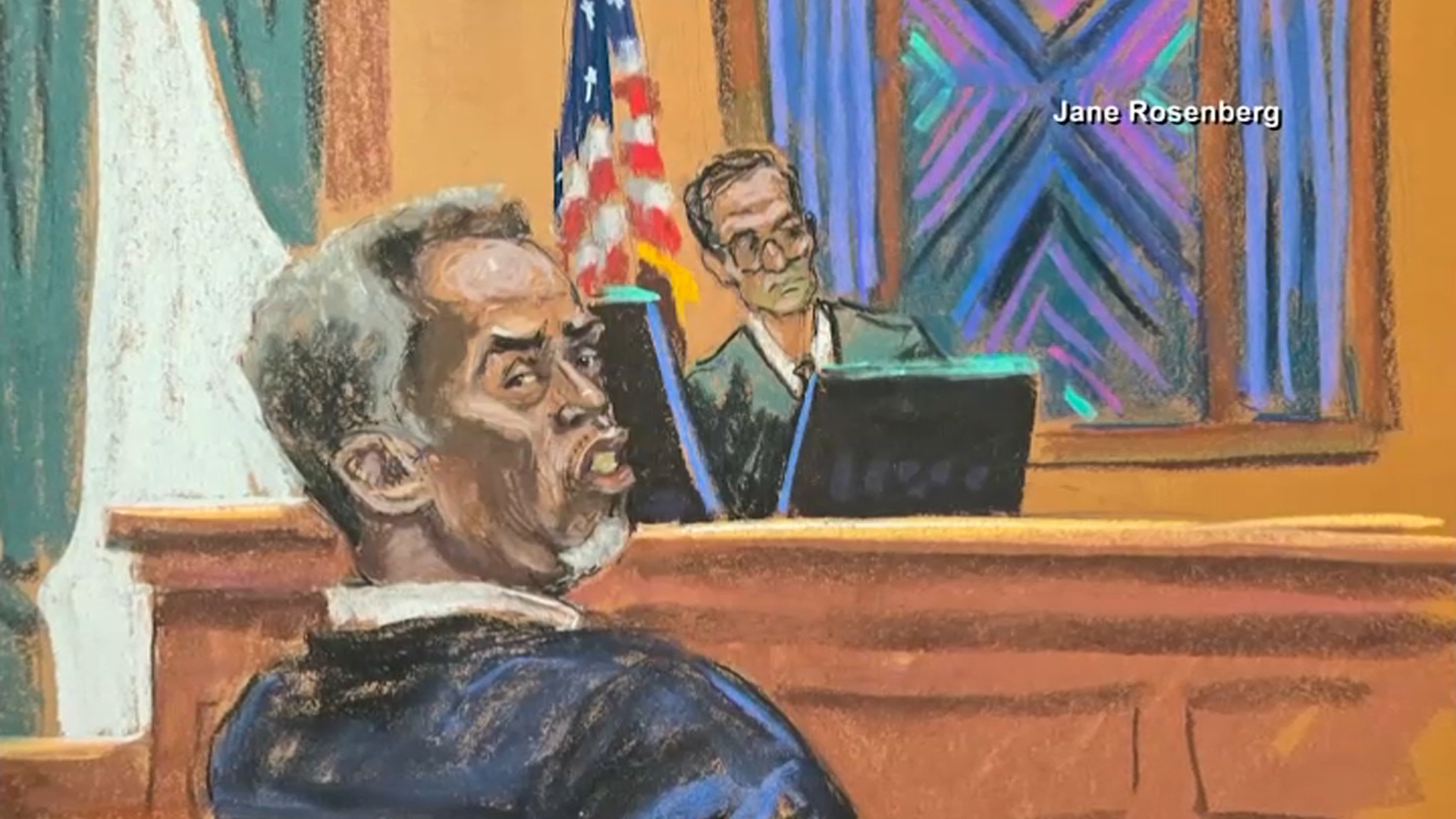Diddy Trial: Jury Selection Wraps, Next Steps Explained
Diddy's Fate in the Balance: Jury Selection Nears Completion in Sex Trafficking Trial
The Stage is Set: Jury Selection Wraps Up in Combs Trial
The legal drama surrounding Sean “Diddy” Combs is reaching a fever pitch. It's like a high-stakes poker game, and the jury is the hand that will determine the outcome. After two intense days of questioning, lawyers in the sex trafficking trial of the music mogul are optimistic that a jury will be in place by Wednesday. Judge Arun Subramanian has been meticulously weeding out any potential biases from the pool of prospective jurors, a crucial step in ensuring a fair trial.
Delving into the Legal Landscape
The Stakes are High for Both Sides
This isn't just another celebrity scandal. This is a serious legal battle with potentially devastating consequences for Combs. If convicted, he could face significant prison time and a severe blow to his reputation. But what exactly is sex trafficking? It's essentially exploiting someone for sexual purposes, often through coercion, force, or fraud. And in this case, prosecutors are painting a picture of Combs as a ringleader, a figure of power who abused his influence.
The Prosecution's Strategy
Opening statements are slated for Monday, and the prosecution is expected to come out swinging. They plan to portray Combs as the head of a criminal enterprise, someone who used his fame and fortune to exploit vulnerable women and shatter young lives. They'll likely present evidence to support their claims of sexual abuse and trafficking, aiming to convince the jury that Combs' actions went far beyond consensual encounters.
The Defense's Counterattack
On the other side, the defense attorneys are gearing up to defend Combs fiercely. Their strategy appears to be based on the argument that any sexual activity Combs engaged in was with consenting adults. They will likely try to discredit the accusers and raise doubts about the prosecution's evidence. It's a classic he-said-she-said scenario, but with much higher stakes.
The Crucial Role of Jury Selection
Why is Jury Selection So Important?
Jury selection, also known as voir dire, is a critical phase in any trial. It's where lawyers get to question potential jurors to identify any biases or prejudices that might affect their ability to render a fair verdict. The goal is to assemble a jury of impartial individuals who can weigh the evidence objectively and make a decision based on the facts presented in court.
How Does it Work?
Imagine trying to build a house with uneven bricks. That's what a trial with biased jurors would be like. During voir dire, lawyers ask potential jurors questions about their backgrounds, beliefs, and experiences. They're looking for anything that might suggest they can't be fair and impartial. This process can be lengthy and arduous, but it's essential to ensuring a just outcome.
Challenges and Objections
Lawyers can challenge potential jurors for cause if they have a legitimate reason to believe they can't be fair. For example, if a potential juror has a close relationship with one of the parties involved in the case, they might be challenged for cause. Lawyers also have a limited number of peremptory challenges, which they can use to strike potential jurors without having to provide a reason. It's a strategic game of chess, with each side trying to shape the jury in their favor.
The Impact of Public Opinion
Can Fame Influence the Jury?
In a case involving a high-profile figure like Sean “Diddy” Combs, it's inevitable that public opinion will play a role. Potential jurors may have preconceived notions about Combs based on what they've seen or heard in the media. That's why it's so important to carefully screen jurors to ensure they can set aside their biases and make a decision based on the evidence presented in court.
The Power of Social Media
Social media can amplify public sentiment and create a narrative around a case long before it goes to trial. Potential jurors may have been exposed to social media posts or news articles that have shaped their opinions about Combs. Lawyers need to be aware of this and ask potential jurors about their social media habits during voir dire.
Key Players in the Trial
Judge Arun Subramanian: The Impartial Overseer
Judge Arun Subramanian is presiding over the case and is responsible for ensuring that the trial is conducted fairly and impartially. He rules on legal issues, oversees the jury selection process, and ensures that both sides have an opportunity to present their case.
The Prosecution Team: Building a Case Against Combs
The prosecution team is responsible for presenting evidence to prove that Combs committed the crimes he's accused of. They'll call witnesses, present documents, and argue their case before the jury.
The Defense Team: Fighting for Combs' Freedom
The defense team is responsible for defending Combs against the charges against him. They'll challenge the prosecution's evidence, call their own witnesses, and argue that Combs is innocent.
The Road Ahead
Opening Statements: Setting the Stage
Opening statements are the first opportunity for each side to tell the jury what they believe the evidence will show. The prosecution will outline their case against Combs, while the defense will present their arguments in his defense.
Witness Testimony: The Heart of the Trial
Witness testimony is a crucial part of the trial. Witnesses will be called to testify about what they saw, heard, or experienced. Their testimony will be subject to cross-examination by the opposing side.
Closing Arguments: The Final Plea
Closing arguments are the final opportunity for each side to persuade the jury. The prosecution will summarize their case and ask the jury to find Combs guilty, while the defense will reiterate their arguments for his innocence.
The Jury's Deliberation
Behind Closed Doors: What Happens in the Jury Room?
Once the evidence has been presented and the closing arguments have been made, the jury will retire to the jury room to deliberate. They'll discuss the evidence, review their notes, and try to reach a unanimous verdict. This process can take hours, days, or even weeks.
The Verdict: Justice Served?
The jury's verdict is the final decision in the case. If the jury finds Combs guilty, he'll be sentenced by the judge. If the jury finds him not guilty, he'll be acquitted and free to go.
The Impact on the Music Industry
A Wake-Up Call for Hollywood?
This trial could have a significant impact on the music industry and Hollywood as a whole. It could force these industries to take a closer look at their practices and address issues of sexual abuse and exploitation. It could also empower victims to come forward and report abuse.
Setting a Precedent
The outcome of this trial could set a precedent for future cases involving allegations of sexual abuse and trafficking. It could send a message to powerful individuals that they will be held accountable for their actions.
Conclusion: A Trial with Far-Reaching Implications
Wrapping Up: The Jury Holds the Key
The Sean "Diddy" Combs sex trafficking trial is a complex and high-stakes legal battle with far-reaching implications. The completion of jury selection marks a crucial milestone, setting the stage for opening statements and the presentation of evidence. The outcome of this trial will not only determine Combs' fate but also potentially reshape the landscape of the music industry and influence future cases involving allegations of sexual abuse and exploitation. The eyes of the world are watching, waiting to see whether justice will be served.
Frequently Asked Questions
- What is sex trafficking? Sex trafficking involves the exploitation of individuals for commercial sex acts through force, fraud, or coercion.
- What is the role of the jury in this trial? The jury's role is to listen to the evidence presented, assess its credibility, and render a verdict based on whether the prosecution has proven guilt beyond a reasonable doubt.
- What are the potential consequences for Sean "Diddy" Combs if he is convicted? If convicted, Combs could face significant prison time, hefty fines, and a devastating blow to his reputation and career.
- How does jury selection work in a high-profile case like this? Jury selection involves questioning potential jurors to identify any biases or prejudices that might affect their ability to render a fair verdict. Lawyers can challenge jurors for cause or use peremptory challenges to strike them from the jury pool.
- What impact could this trial have on the music industry? This trial could prompt the music industry to address issues of sexual abuse and exploitation more seriously and could empower victims to come forward.


